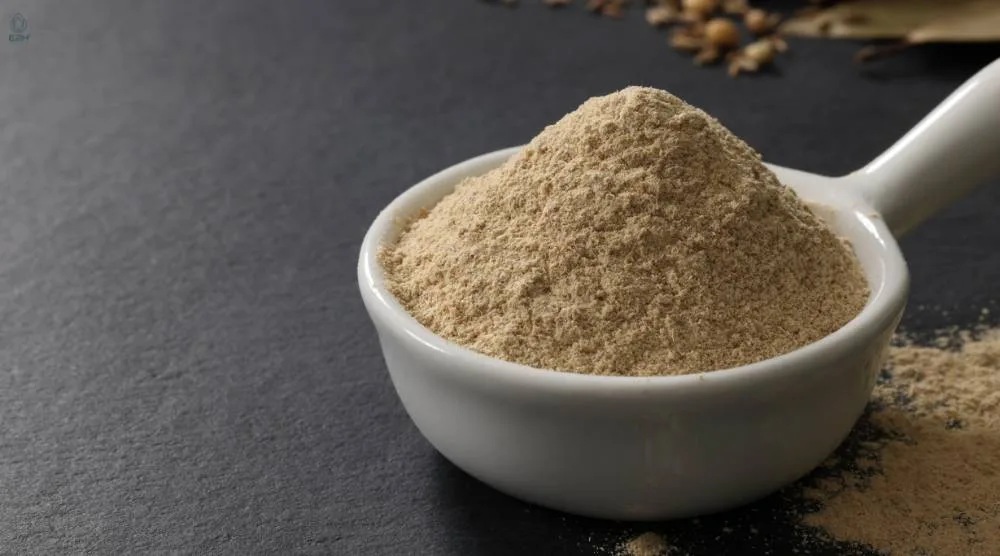What Medications Should Not Be Taken with Ashwagandha: Medications that should not be taken with Ashwagandha include thyroid medicines, sedatives, immunosuppressants, drugs for diabetes and high blood pressure, and digoxin.
Curious about how Ashwagandha interacts with your medications? Keep reading to learn about its effects and ensure your health and safety.
Which Medications Can Interact Negatively With Ashwagandha?
Ashwagandha, a renowned herb in traditional medicine, is known for its stress-relieving properties. However, it’s crucial to be aware of its potential interactions with certain medications. Thyroid medicines, for instance, can be particularly sensitive to ashwagandha’s effects.
The herb might amplify the production of thyroid hormones, leading to an imbalance. Sedatives, including benzodiazepines and barbiturates, can also interact with ashwagandha. This combination might enhance the sedative effect, potentially leading to excessive drowsiness or sedation. Additionally, ashwagandha can affect the efficacy of immunosuppressants by boosting the immune system, which could counteract the intended effect of these drugs.

For those on diabetes medication, ashwagandha might lower blood sugar levels, risking hypoglycemia when combined with antidiabetic drugs. Similarly, its potential blood pressure-lowering effects could interact with hypertension medications, possibly leading to hypotension. Lastly, ashwagandha may interfere with the measurement of drug levels in the bloodstream, as seen with digoxin, a heart medication.
Are There Specific Drugs That Should Not Be Taken Alongside Ashwagandha?
Yes, there are specific drugs that should be used cautiously with ashwagandha. This herb can interact with thyroid medications, potentially altering hormone levels and disrupting thyroid function. Sedatives, such as benzodiazepines and barbiturates, when taken with ashwagandha, might lead to increased sedation, affecting alertness and coordination.
Immunosuppressants, prescribed for conditions like autoimmune diseases and organ transplant, could be less effective when used with ashwagandha due to its immune-boosting properties. For those managing diabetes with medication, ashwagandha’s ability to lower blood sugar levels could result in hypoglycemia, especially when combined with antidiabetic drugs.
Similarly, its impact on blood pressure might enhance the effects of antihypertensive drugs, potentially causing blood pressure to drop too low. Furthermore, ashwagandha can interfere with the lab measurement of certain drugs, such as digoxin, used for heart conditions, leading to inaccurate dosing.
Can Ashwagandha Impact The Effectiveness Of Thyroid Medications?
Ashwagandha can indeed impact the effectiveness of thyroid medications. This herb is known to influence thyroid hormone levels in the body. It may increase the production of thyroid hormones, which can be particularly concerning for those with hyperthyroidism or those taking synthetic thyroid hormones.
This increase can lead to symptoms of excess thyroid hormone, such as increased heart rate, anxiety, and sleep disturbances. For individuals with hypothyroidism, while ashwagandha might seem beneficial due to its potential to boost hormone levels, it can complicate the management of thyroid function and medication dosage.
The interaction between ashwagandha and thyroid medication can lead to an imbalance in hormone levels, making it challenging to maintain a stable and effective treatment regimen. Therefore, the use of ashwagandha in conjunction with thyroid medications requires careful consideration and monitoring of thyroid hormone levels.
What Are The Rare But Real Side Effects Of Ashwagandha?
- Allergic Reactions: Some individuals may experience allergic reactions to ashwagandha, especially if they are sensitive to plants in the nightshade family.
- Gastrointestinal Issues: High doses of ashwagandha can lead to stomach upset, including diarrhea and vomiting.
- Drowsiness: While often used for its calming effects, ashwagandha can cause excessive drowsiness, particularly when taken in large doses.
- Headaches: A small number of users report headaches after consuming ashwagandha.
- Dry Mouth: This herb can occasionally lead to dry mouth or a feeling of dehydration.
- Elevated Heart Rate: In rare cases, ashwagandha can cause an increase in heart rate.
- Liver Issues: Very rare instances of liver problems have been reported, likely due to impurities or high doses.
- Thyroid Hormone Fluctuations: Ashwagandha can affect thyroid hormone levels, potentially causing imbalances.
Is Combining Sedatives With Ashwagandha Risky For Over-sedation?
Combining sedatives with ashwagandha can indeed be risky due to the potential for over-sedation. Ashwagandha itself possesses natural sedative properties, which can enhance the effects of sedative medications, including benzodiazepines and barbiturates. This combination can lead to heightened drowsiness, reduced alertness, and impaired motor coordination.

In extreme cases, it might even result in dangerously low levels of consciousness or respiratory depression. Therefore, mixing ashwagandha with sedatives should be approached with caution, as the compounded sedative effect can significantly impact daily activities and overall safety.
Does Ashwagandha Undermine Immunosuppressant Meds?
Ashwagandha may undermine the effectiveness of immunosuppressant medications. Known for its immune-boosting properties, ashwagandha can potentially counteract the effects of drugs designed to suppress the immune system. This is particularly relevant for individuals taking immunosuppressants for autoimmune disorders or post-organ transplant care.
The herb’s stimulating effect on the immune system could reduce the efficacy of these medications, potentially leading to an increased risk of organ rejection or exacerbation of autoimmune symptoms. Therefore, ashwagandha’s interaction with immunosuppressants is a significant concern, as it can compromise the intended therapeutic outcomes of these drugs.
Can Ashwagandha Unexpectedly Interfere With Digoxin Treatment?
Ashwagandha can unexpectedly interfere with digoxin treatment. This interference primarily occurs during laboratory testing, where ashwagandha can cause false elevations in digoxin levels. This is due to the similarity in chemical structures between certain compounds in ashwagandha and digoxin, leading to inaccurate readings in immunoassays used to measure digoxin levels in the blood.
Such inaccuracies can be problematic, as they may prompt unnecessary adjustments in digoxin dosage, potentially leading to improper treatment. While ashwagandha itself does not directly affect the pharmacological action of digoxin, its impact on lab results is an important consideration for those undergoing digoxin therapy.
Is There A Balance Between Ashwagandha And Diabetes Drugs?
Finding a balance between ashwagandha and diabetes drugs is crucial due to the herb’s potential impact on blood sugar levels. Ashwagandha is known for its ability to lower blood glucose, which can be beneficial for managing diabetes.
However, when combined with diabetes medications, which also lower blood sugar, there’s a risk of hypoglycemia, or blood sugar dropping too low. This can lead to symptoms like dizziness, sweating, and confusion. Therefore, while ashwagandha can be a supportive natural remedy for diabetes, its interaction with diabetes medications needs careful monitoring to maintain a safe balance of blood sugar levels.
Does Ashwagandha Pose A Risk For Hypotension With Hypertension Meds?
Ashwagandha may pose a risk for hypotension, especially when taken alongside hypertension medications. This herb has been shown to potentially lower blood pressure. When used in conjunction with blood pressure-lowering drugs, the combined effect can lead to a significant drop in blood pressure, known as hypotension.
This condition can manifest as dizziness, fainting, or even blurred vision, which can be dangerous in certain situations. Therefore, while ashwagandha can be beneficial for its calming effects, its interaction with hypertension medications should be carefully considered to avoid the risk of excessively low blood pressure.
Is Ashwagandha’s Immune-boosting Effect Helpful Or Harmful With Immunosuppressants?
Ashwagandha’s immune-boosting effect can be more harmful than helpful when combined with immunosuppressants. Ashwagandha supplements are known for stimulating the immune system, which can be counterproductive for those taking immunosuppressive drugs.

These medications are often prescribed to control autoimmune diseases or to prevent organ transplant rejection, and their purpose is to suppress the immune response. When ashwagandha is introduced into this regimen, it may counteract the effects of these drugs, potentially leading to increased immune activity, which can exacerbate autoimmune symptoms or increase the risk of organ rejection.
Is Ashwagandha Safe, And What Myths Should Be Debunked?
Ashwagandha is generally safe for most people, but there are myths that need debunking. One common misconception is that ashwagandha can be taken without any consideration of its interactions with other medications. In reality, it can interact with certain drugs, as discussed earlier.
Another myth is that ashwagandha is a cure-all remedy. While it has many benefits, such as reducing stress and improving sleep, it is not a magic solution for all health issues. Additionally, the belief that more is better is not true for ashwagandha; high doses can lead to side effects like stomach upset and drowsiness. Understanding these aspects ensures a safe and informed use of ashwagandha.
FAQs For ‘Medications Should Not Be Taken with Ashwagandha’
Can Ashwagandha Interfere with Blood Pressure Medication?
Yes, ashwagandha may lower blood pressure, potentially causing hypotension when combined with blood pressure medications.
Is It Safe to Take Ashwagandha with Diabetes Medication?
Ashwagandha can lower blood sugar levels, which might lead to hypoglycemia if taken with diabetes medication.
Should Ashwagandha Be Avoided with Thyroid Hormone Therapy?
Ashwagandha can increase thyroid hormone levels, potentially disrupting thyroid medication balance.
Can Ashwagandha Be Taken with Immunosuppressive Drugs?
No, ashwagandha boosts the immune system and may counteract the effects of immunosuppressive drugs.
Does Ashwagandha Affect the Efficacy of Sedatives?
Yes, ashwagandha can enhance the sedative effects of drugs like benzodiazepines, leading to increased drowsiness.
Conclusion
Understanding what medications should not be taken with ashwagandha is key to ensuring your safety and health. While ashwagandha offers numerous benefits, its interactions with certain medications, especially those for blood pressure, diabetes, thyroid disorders, and immune suppression, require attention. Always be informed and cautious with herbal supplements, and remember that natural doesn’t always mean risk-free. Stay safe and make well-informed decisions for your health journey.














